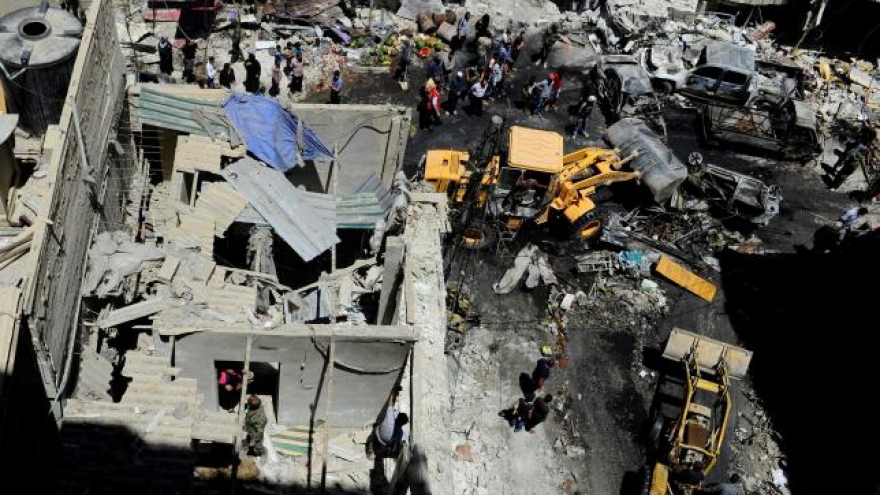Civilians stuck inside IS-held Falluja at risk of disease: WHO
Tens of thousands of civilians stranded inside Islamic State-controlled Falluja are at risk of disease outbreaks as Iraqi government forces press their assault to retake the city, World Health Organization (WHO) official Ala Alwan said on June 16.
 |
Islamic State has tightened control over civilian movement in central Falluja, where an estimated 40,000 people are stuck with little water or food, as commandos from an elite counter-terrorism force inch closer to the city's main government building more than three weeks after the offensive began.
The ultra-hardline militants, who by US estimates have lost almost half of the northern and western territory they seized when Iraqi forces partially collapsed in 2014, have used residents as human shields to slow the military's advance and thwart an international air campaign backing them.
Falluja, an hour's drive west of Baghdad, is seen as a launchpad for Islamic State bombings in the capital, making the offensive a crucial part of the government's campaign to improve security, although US allies would prefer to concentrate on IS-held Mosul, Iraq's second largest city in the far north.
Children inside Falluja have not received immunizations since the militants took control in 2014, said Ala Alwan, WHO's regional director for the eastern Mediterranean, who visited displacement camps in Amiriyat Falluja, a town southeast of Falluja.
"The low level of immunity coupled with poor hygiene conditions raises the risk of disease outbreaks, such as measles," he said in a statement, and hundreds of pregnant women were also in urgent need of reproductive health services.



